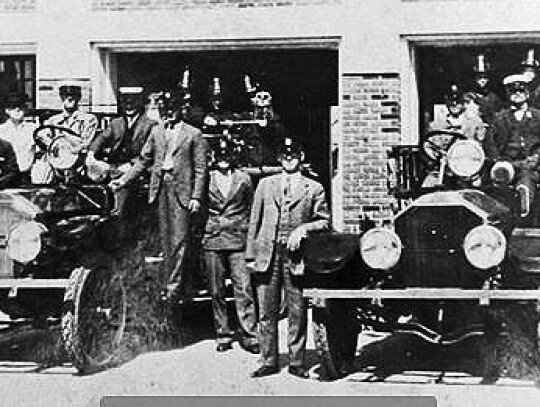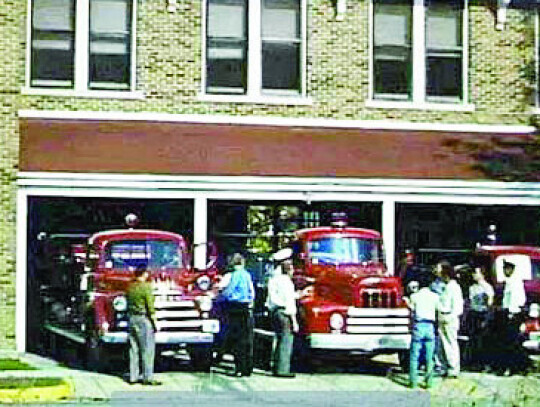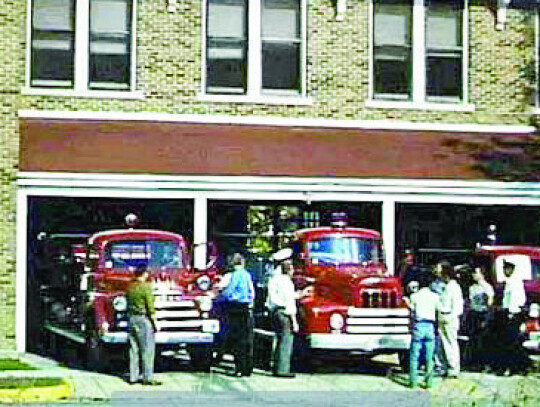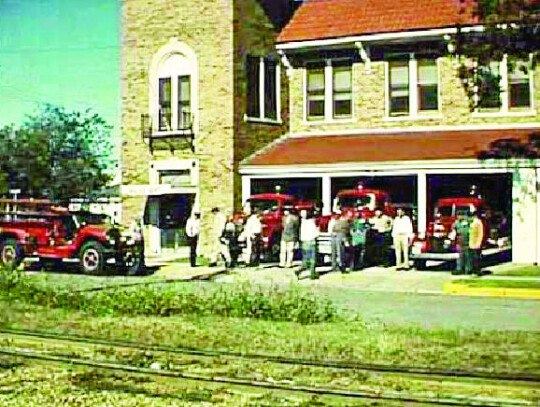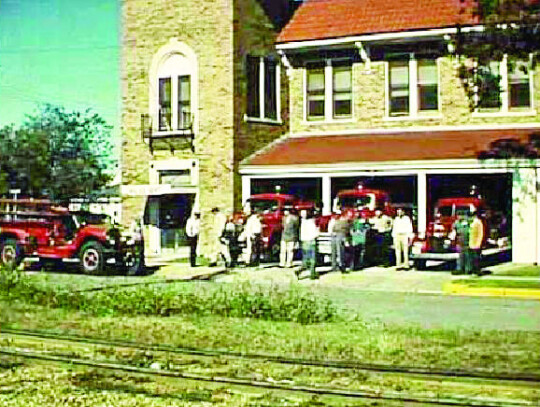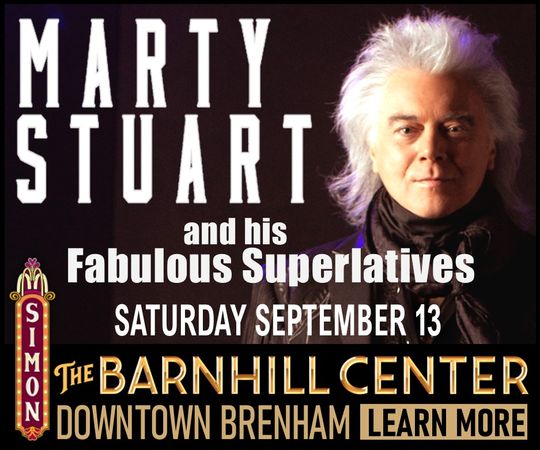Eagle Lake Remembers
It all started with a lowpitched growl. It was barely audible at first except for those who knew. Birds flew, cats ran under the houses, and dogs began to howl. Our cocker spaniel howled mightily. The familiar sound rose from a low to a high pitch, hanging on to one penetrating, sustained note at the top. Not even a loud train could cover it. It was the twelve o’ clock whistle.
The shrill sound could be heard for miles well into the countryside, until it retraced its journey back down the tones to the original silence on the switch at the fire department. It was the unmistakable sound everyone knew. It also sounded at 6 pm signaling the end of the downtown business workday with supper waiting.
The yellow gloved hands of my Mickey Mouse watch were almost straight up. Even if we couldn’t tell time, we knew what that meant. It was noontime in Eagle Lake. Schools let out; many businesses closed; people scurried across the square to their cars or along the sidewalks home. If their watches were slightly off, they wound them tightly, and re-synched them with the old whistle. Eagle Lake ran on time.
At home, typically the iced tea glasses were already sweating. The bread was in the oven. The places were set. School children were coming home. Men grabbed their hats. They dared not be late. The whistle typically marked an hour of family lunchtime. For some teachers, and children, who lived in the country, several local families offered lunches in their homes, such as the home of Robert Samuel Martin, and several boarding houses, like the old Nail Boarding House across from the station.
Downtown, businessmen and women walked over to the Darby Café on the square, which offered a plate lunch special, with fruit pie for dessert. Barber Red Barnett tossed off his apron and joined the crowd. While not all businesses closed, many a sign was hung hastily on a nail on the door with the words “Back 1:00 pm” or “Closed.” Conversations were animated, asking first about the family, and then about business.
Lunchtime was actually “Dinnertime,” in Eagle Lake. Lunch was generally referred to as “Dinner,” and the evening meal was referred to as “Supper.” This was common in a small Texas town. The majority of folks worked in the farming, ranching, and related businesses, where the days began early. By noon they were ready for a hefty meal, large enough to be a dinner.
In the middle of the block on McCarty Avenue at the square was a small Western Union office. It was run by Mrs. J.G. Cook. The big clock was hung on the back wall, and could be seen through the front window from the street. When they weren’t setting their watches by the twelve o’clock whistle, passersby would set them by the Western Union clock.
Equally important was the weather report which was daily posted on the front window, received on a form, naturally, by a Western Union message. The farmers passed by for a daily weather report, which was carried along the streets in conversation, and into the stores and businesses.
We children were amazed at how that old Fire Whistle knew to blow right at twelve noon each day. Truth is, as we heard it again at 6 pm. daily, it was a double mystery. Many a housewife was grateful for this unmistakable call to their carefully prepared meals. We all knew to head home when the signal blew, or be in trouble.
That whistle was about as high technology as we had. Somehow it mysteriously knew both when to blow, and how to tell time. It wasn’t until much later that the mystery was solved. Back in the nineteen thirties, an Eagle Lake man named Buster Mooney lived in an apartment with his family in the fire station on the first floor. In fact, he was the fire chief. He had a vegetable garden just outside his door, and spent a lot of his time cleaning and polishing the two old fire trucks.
One of Buster’s most important jobs was to push a button on the wall just outside his apartment door at noon and at six o’clock p.m. each work day in Eagle Lake. He monitored the time, and when he was a minute late, it was duly noted by the townsfolk. There were plenty of pocket watches around to test his accuracy, including those at the train station across the street.
Buster also blew the whistle when he received news of a local fire. He would push the button on his wall to sound the alarm. Depending upon which side of town the fire was located, he would sound from two to four blasts of the fire whistle indicating the area. Driving out of the station in his polished fire truck, Buster first drove slowly around the square so that fire volunteers could jump on and cling fast out to the scene to help douse the fire, accompanied by others in their cars.
In the old days of the Lakeside Sugar Mill, in the early nineteen hundreds, workers’ shifts during the day and night were noted by a signal blast from town heard on Lakeside drive. While we can’t be certain, the old Twelve O’ Clock whistle may be older than we thought.
There are talks about bringing the old whistle back. If so, countless memories and stories will accompany it.
We children were amazed at how that old Fire Whistle knew to blow right at twelve noon each day. Truth is, as we heard it again at 6 pm. daily, it was a double mystery. Many a housewife was grateful for this unmistakable call to their carefully prepared meals. We all knew to head home when the signal blew, or be in trouble.
.jpg)
